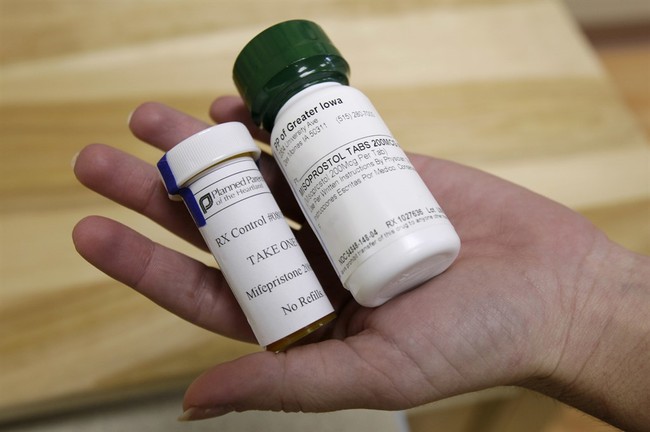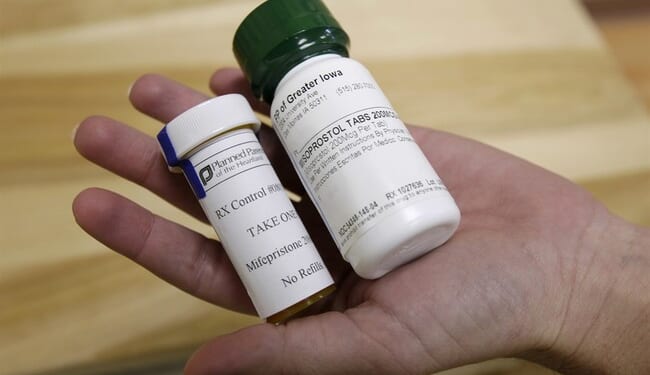
Here’s one development in the ongoing debate over abortion that I did not see coming. Ever since the Supreme Court turned decisions over the legality of abortions back to the states, Louisiana has been among the most aggressive in implementing restrictions. They have already outlawed abortions in almost all cases, whether it is done via surgery or medication. But now, the legislature is preparing a new bill that would reclassify two non-prescription abortion pills as controlled, dangerous substances and criminalize the possession and distribution of mifepristone and misoprostol. If approved, this move would put the drugs into the same category as many narcotics, steroids, and depression medications. The first question that came to my mind was… can they even do that? (Axios)
Louisiana is moving to criminalize possession of two medications used to induce abortion without a prescription, with punishments including prison time.
If approved, Louisiana would become the first state to categorize mifepristone and misoprostol as controlled dangerous substances, a class of drugs that includes medications that can be abused such as narcotics, steroids and depressants.
Abortion, both via medication and surgery, is already completely banned in the state with very limited exceptions, per the Guttmacher Institute, a research organization that supports abortion rights.
The move comes weeks before the Supreme Court is set to rule on access to medication abortion in its biggest abortion-related case since overturning Roe v. Wade two years ago.
Just to be clear, I still support the way that the Supreme Court handled this situation, and returning these questions to the states was the right thing to do. If the voters of Louisiana do not wish to allow abortions in their state and they elect representatives who impose restrictions, I don’t see any problem with it. Governor Landry has seemed to be on board with taking this direction as well.
With all of that said, however, this approach to dealing with medications like mifepristone and misoprostol seems problematic to say the least. First of all, under the restrictions that were already passed, if someone were found to have used the drugs in the state, they would already be violating the law. Both of those drugs effectively induce a miscarriage in a pregnant woman, a risky procedure that should only be done under a doctor’s supervision. The act would absolutely qualify as “an abortion” and should already be covered.
How does the state justify criminalizing the possession of the drugs, though? The drugs don’t even require a prescription in most cases. They are obviously dangerous (lethal) to an unborn baby but they seem to have been deemed to pose minimal risks to the mother. I spent a little time searching for previous examples where drugs approved by the FDA made the jump from non-prescription status to “dangerous controlled substance” in one step, but was unable to find any.
This all seems to be rather redundant and, frankly, over the top. It feels as if Louisiana has been watching other states impose restrictions on abortions and decided to say, “Hold my beer.” Classifying these drugs in the same category as potentially addictive narcotics or antidepressants seems to be a serious step too far. But at the same time, the regulatory jungle surrounding the pharmaceutical industry is such a convoluted mess that government entities can probably get away with pretty much any sort of regulatory maneuver they like. We’ll have to wait to see if this rule is challenged, assuming it goes into effect, and who would have standing to bring such a challenge and whether or not it would succeed.

